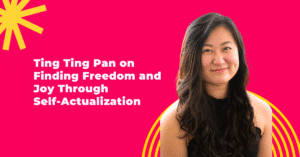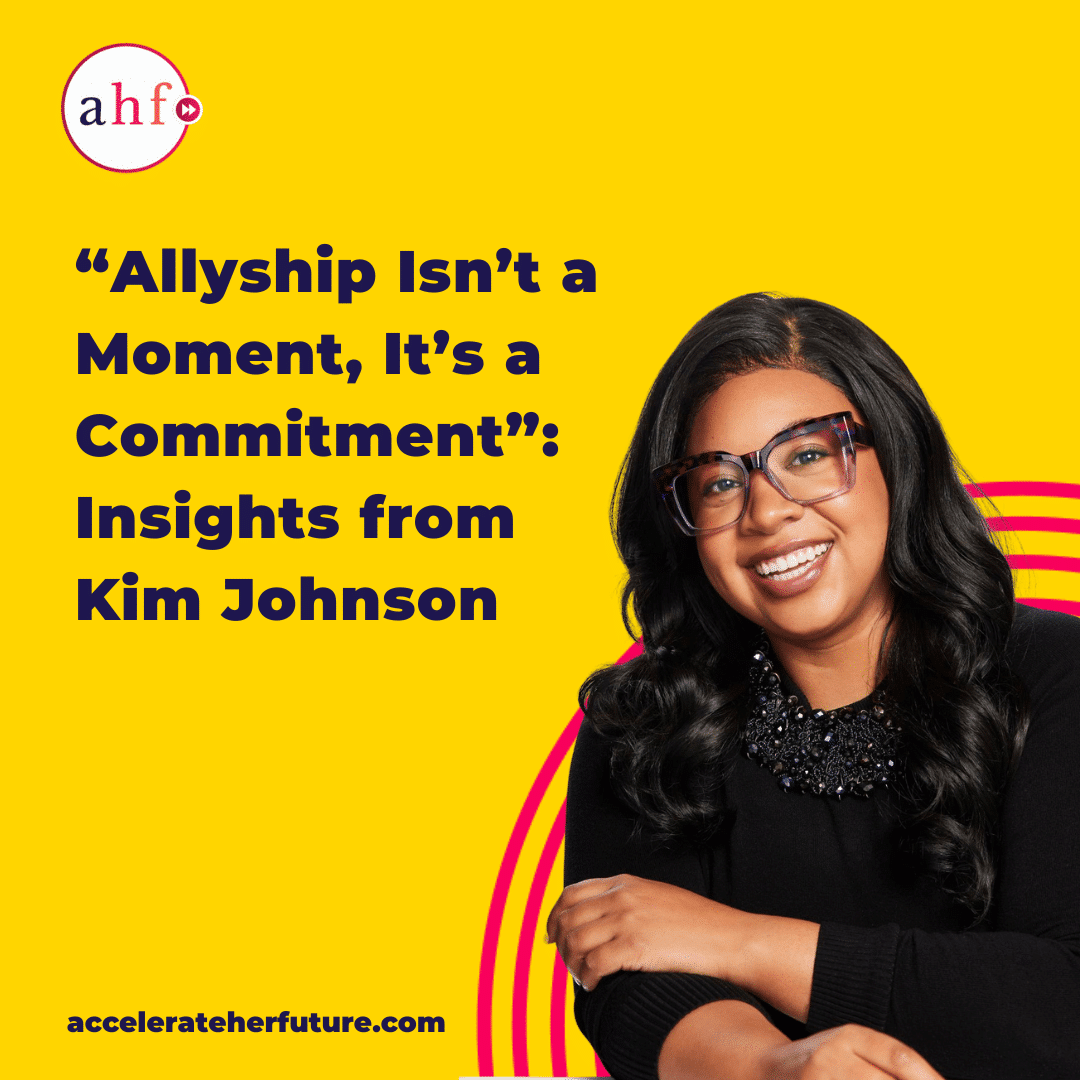

Written by Dr. Golnaz Golnaraghi, Founder and President of Accelerate Her Future
In 2020, companies flooded our feeds with black squares and bold declarations. Orange squares came next. Messages of solidarity rolled out across social media, corporate newsletters, and town halls. But as the hashtags faded, so did the action.
What many of us already knew became painfully clear: optical allyship. Allyship that looks good on paper but does little to shift systems is alive and well.
At our recent Accelerate Her Future Virtual Summit 2024: Flourish panel, “Not All Sponsors & Allies Are Created Equal: An Intersectional Look at Allyship for Indigenous, Black and Racialized Women at Work,” Kim Johnson, Director of Diversity, Equity & Inclusion at Holt Renfrew, cut through the noise with a truth.
Kim went on to explain that allyship is a verb. It’s situational. And it has to be ongoing. It’s not about centering yourself, it’s about how your privilege can help those who are historically marginalized, especially in the workplace.
Because when we talk about allyship for Indigenous, Black, and racialized women and gender diverse folks at work, we’re not talking about showing up once. We’re talking about a journey of listening, learning, unlearning, and taking action that leads to change.
Kim reminded us of something critical: allyship isn’t a title you give yourself.
It’s a role earned through trust, consistency, and accountability. And the people who get to decide whether or not you’re an ally are the ones on the receiving end.
Allyship that stops at performative gestures, like a statement on International Women’s Day that excludes trans women, or a LinkedIn post without any action behind it, does not serve Indigenous, Black and racialized communities. If anything, it erodes trust.
“To show up in meaningful ways as an ally, you have to get uncomfortable. You have to take risks. It means listening more than you speak, and not making it about your guilt or your feelings,” highlighted Kim. “Allyship isn’t about being seen as a ‘good person’, it’s about doing what’s right, even when no one is watching. You don’t need applause. You need to act.”
Another truth Kim laid bare: Indigenous, Black, and racialized women are often over-mentored and under-sponsored.
“To ensure allyship is ongoing, sponsorship means those who are high-potential talent, and happen to be Indigenous and racialized women have their names spoken at decision-making tables,” explained Kim. “That they’re being sought out for opportunities, have access to senior leaders, and are being actively sponsored.”
Sponsorship is not a coffee chat. It’s not a “you’re doing great” on a performance review. According to Kim, it’s about putting your credibility on the line as an ally to get someone promoted. To push for equitable pay. To name their brilliance in rooms they’re not in, yet.
If you’re a leader with influence and you’re still only mentoring Indigenous and racialized women, ask yourself: What’s holding me back from sponsoring them? Sponsorship requires more than support, it requires power-sharing.
Throughout the panel, another message echoed: solidarity requires nuance.
Kim, speaking from her lived experience as a Jamaican Canadian woman and settler on this land, shared how she intentionally approaches solidarity with Indigenous communities.
It’s not solidarity if it’s rooted in assumption. It’s not solidarity if it turns one Indigenous employee into the spokesperson for all Indigenous Peoples. It’s not solidarity if it leaves trans women out of “women’s” initiatives.
True allyship requires more than intention; it’s about transformation. It calls us to show up not just when it’s convenient, but when it counts. It asks us to listen deeply and take action that challenges the status quo. The time for performative allyship has passed. What we need now is courage, solidarity, and a commitment to change that lasts.
As Kim Johnson reminds us, “this work isn’t about being perfect. It’s about being present, consistent, and accountable.”